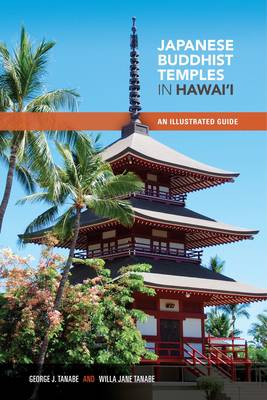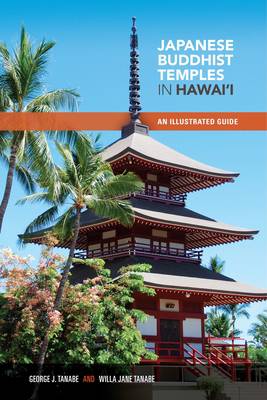
- Retrait gratuit dans votre magasin Club
- 7.000.000 titres dans notre catalogue
- Payer en toute sécurité
- Toujours un magasin près de chez vous
- Retrait gratuit dans votre magasin Club
- 7.000.0000 titres dans notre catalogue
- Payer en toute sécurité
- Toujours un magasin près de chez vous
Japanese Buddhist Temples in Hawaii
An Illustrated Guide
George Tanabe, Willa Jane TanabeDescription
Upon entering a Japanese Buddhist temple in Hawai'i, most people--whether first-time visitors or lifelong members--are overwhelmed by the elaborate and complex display of golden ornaments, intricately carved altar tables and incense burners, and images of venerable masters and bodhisattvas. These objects, as well as the architectural elements of the temple itself, have meanings that are often hidden in ancient symbolisms. This book, written by two local authorities on Japanese art and religion, provides a thorough yet accessible overview of Buddhism in Hawai'i followed by a temple-by-temple guide to the remaining structures across the state.
Introductory chapters cover the basic history, teachings, and practices of various denominations and the meanings of objects commonly found in temples. Taken together, they form a short primer on Buddhism in Japan and Hawai'i. The heart of the book is a narrative description of the ninety temples still extant in Hawai'i. Augmented by over 350 color photographs, each entry begins with historical background information and continues with descriptions of architecture, sanctuaries, statuary and ritual implements, columbariums, and grounds. Appended at the end is a chart listing each temple's denomination, membership number, and architectural type. While many Buddhist temples in Hawai'i are active social and religious centers, a good number are in serious decline. In addition to being an introduction to Buddhism and a guide book, Japanese Buddhist Temples in Hawai'i is an indispensable historical record of what exists today and what may be gone tomorrow. It will appeal to temple members, pilgrims, residents and tourists interested in local cultural and historic sites, and historians of Buddhism in Hawai'i.Spécifications
Parties prenantes
- Auteur(s) :
- Editeur:
Contenu
- Nombre de pages :
- 256
- Langue:
- Anglais
Caractéristiques
- EAN:
- 9780824836795
- Date de parution :
- 31-10-12
- Format:
- Livre broché
- Format numérique:
- Trade paperback (VS)
- Dimensions :
- 155 mm x 234 mm
- Poids :
- 517 g

Les avis
Nous publions uniquement les avis qui respectent les conditions requises. Consultez nos conditions pour les avis.






